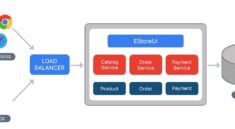Buy Server Online – this phrase has become increasingly popular among IT managers, startups, and enterprises looking to upgrade their infrastructure cost-effectively. But once you begin your search, one question always comes up: Should you invest in a new server or consider a refurbished one?
This guide dives deep into both options to help you make a well-informed, business-smart decision.
Understanding the Basics of Servers:
New Servers are straight from the manufacturer, unused, and come with the latest warranties, updates, and support.
Refurbished Servers are pre-owned devices that have been professionally tested, repaired (if needed), and restored to full working condition. They often come from enterprise lease returns or overstock.
1. Cost Efficiency
New Servers:
New servers come with a premium price tag. While they offer the latest hardware and software capabilities, their upfront cost is significantly higher—especially for startups or small businesses working with tight IT budgets.
Refurbished Servers:
You can often save up to 40-60% by choosing refurbished servers. This allows businesses to reallocate capital to other areas like software, security, or storage upgrades.
Verdict:
If budget is a concern or you’re looking to maximize ROI, refurbished servers offer tremendous value.
2. Performance and Reliability
New Servers:
You get cutting-edge performance, the latest processors, and full support from OEMs. However, most applications and workloads don’t necessarily need bleeding-edge tech.
Refurbished Servers:
Modern refurbished servers like Dell PowerEdge, HPE ProLiant, and Lenovo ThinkSystem are capable of running enterprise-grade applications reliably. Most vendors also test and certify these servers for stability and performance before resale.
Verdict:
Unless you’re running AI/ML, real-time trading platforms, or high-performance computing, refurbished servers can match the performance of new servers for general business workloads.
3. Customization and Scalability
New Servers:
They can be configured from scratch as per your requirements. This ensures you only pay for what you need.
Refurbished Servers:
A good vendor will offer flexible configuration options even on refurbished units. You can choose CPU, RAM, storage, and RAID controllers to suit your business.
Verdict:
Both options offer scalability. But if your needs are flexible, refurbished servers can easily meet them without the high price tag.
4. Warranty and Support
New Servers:
Comes with full OEM warranty, often extendable up to 5 years. Best for mission-critical operations where downtime is non-negotiable.
Refurbished Servers:
Reputed sellers offer 6–24 months warranty with optional AMC (Annual Maintenance Contracts). Some vendors even offer advance replacement and remote support.
Verdict:
If you’re working in a regulated or compliance-heavy industry, new servers may be safer. For most other businesses, vendor-backed warranty on refurbished units is more than sufficient.
5. Sustainability Factor
Choosing Refurbished Servers contributes to reducing e-waste and carbon emissions. By extending the lifecycle of IT hardware





